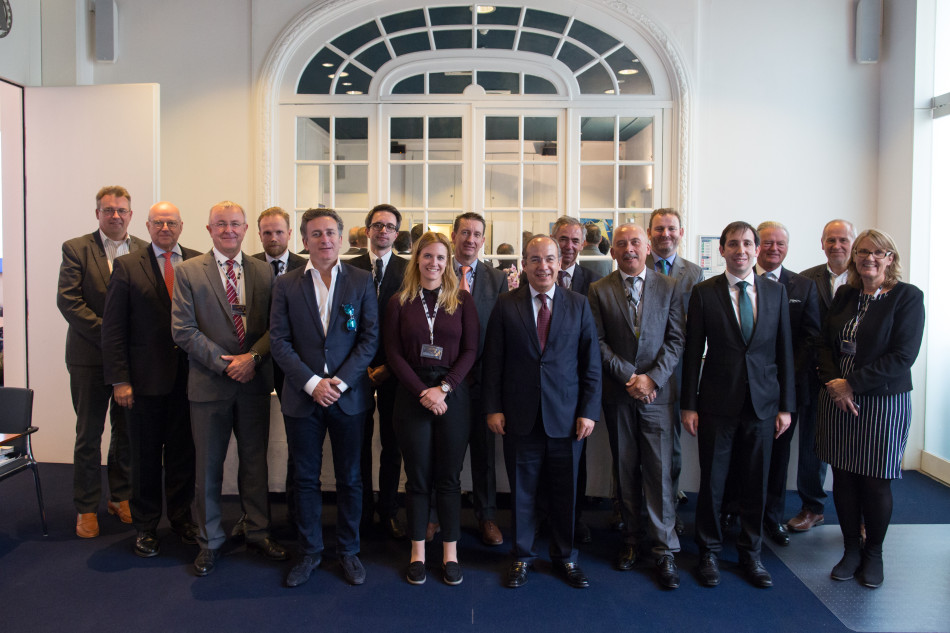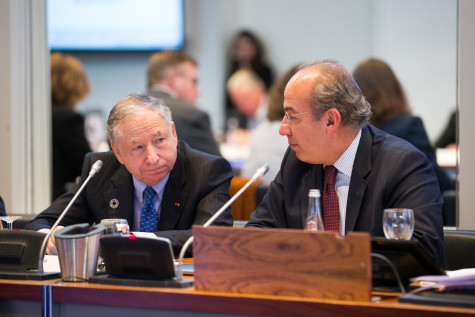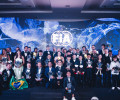Second FIA Environment and Sustainability Commission meeting highlights strong progress
The FIA’s Environment and Sustainability Commission came together this week in Paris, where the second meeting of this new body, chaired by President Felipe Calderón, highlighted the positive strides taken towards achieving its objectives.

The Commission aims to strengthen the FIA’s environmental sustainability credentials across its two pillars of Sport and Mobility. As the governing body for motor sport and the Federation representing over 80 million motorists, the FIA has a duty to help lead the global sustainability agenda.
To open the meeting, Graham Stoker, FIA Deputy President for Sport and Thierry Willemarck, FIA Deputy President for Mobility, shared their insights on the progress of priority topics.
With regard to Sport, Project ‘Inspire’ has significantly raised awareness of environmental issues among FIA members around the world, rolling out a process for measuring and improving environmental performance. Following the project launch on World Environment Day (5 June) at the FIA Sport Conference in Manila, 36 sport club representatives attended an accreditation workshop, with more than half having since gone on to initiate the accreditation model. To encourage further uptake, the Commission proposed a regional rollout plan to promote best practice and encourage co-operation between clubs.
On the matter of the environmental regulation of FIA championships, the results of the successful accreditation implementation in the World Rally Championship were revealed, highlighting significant improvements in several events this season. The Commission considered a proposal for an environmental accreditation roadmap for other Championships in the coming years.
Regarding co-operation between the FIA and other international federations and organisations, strong progress has been made, most notably the formation of a mutual representation principle between the Environmental Commissions of the FIA, FIM and the IOC.
Graham Stoker commented: “As a world sport governing body, and a federation recognized by the International Olympic Committee, it is vital that we are delivering best practice in environmental sustainability for motor sport. The FIA has been actively engaged in this important debate since 2013 with a number of sound programmes already in place, and the role of the Environment and Sustainability Commission is to now press on with strong progress in this area and lead the FIA’s sustainability efforts.”
In the realm of Mobility, a focus group organised at the FIA Mobility Conference in Montevideo in July to debate how the accreditation can be tailored to the needs of the club members has since led to the initiation of a pilot project, the framework for which was also discussed at the Commission meeting. The FIA’s accreditation programme, which comprises assessment criteria for three certification levels, puts sustainability at the core of the strategy for Mobility clubs, laying the foundations for a significant improvement in environmental performance in the coming years.
On the matter of urban mobility, a key focus for the Commission, the meeting examined insights into congestion management and the innovative tools available for tackling this issue. The meeting encouraged further exploration of competitive technological solutions in order to provide clubs with an efficient platform to predict, optimise and enhance traffic flows.
With regard to the FIA Smart Cities programme, the Commission assessed the impact of the 2018 Smart Cities Forums in encouraging innovative practices linked to sustainable urban development. Season 5 of the FIA Formula E Championship will see increased cooperation with leading organisations in urban mobility, and a ‘legacy’ component will be developed to strengthen the involvement of member clubs in discussions with city authorities.
Thierry Willemarck commented: “We now have the momentum to position the FIA as a global leader in sustainability, equipping our member clubs with tools and strategies to address pressing environmental issues in urban environments, but also internal operations. They see an increasing value in more robust and efficient sustainability standards in all areas of activities, from urban traffic management to environmental accreditation.”
In concluding the second meeting, President Calderón said: “The contribution of the FIA to sustainability has already had a positive impact, for example through the experience gained in motorsport technical research and transferred to road car development programmes. Looking ahead, the Commission wants to help FIA Members and partners by bringing together all that experience, that vision, in order to provide beneficial resources and drive forward projects that contribute to the future of sustainable Mobility and Sport.”


 Facebook
Facebook Twitter
Twitter






